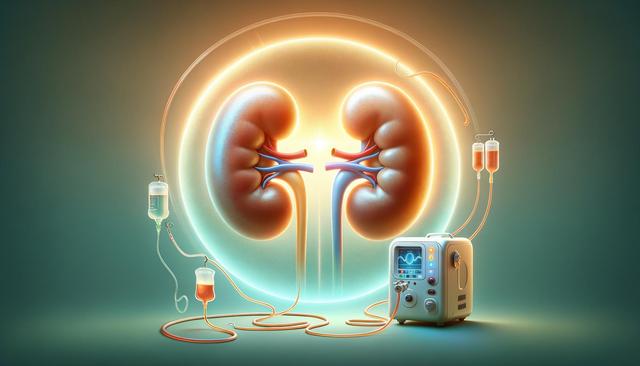Recognizing Stage 3 Kidney Disease Symptoms
Stage 3 kidney disease is a moderate form of chronic kidney disease (CKD), where kidney function has declined to a significant level but the kidneys are still working. It is often divided into two sub-stages: 3a and 3b, depending on the glomerular filtration rate (GFR). Recognizing Stage 3 kidney disease symptoms early can aid in slowing the progression and enhancing overall quality of life. Common symptoms may include:
- Fatigue and weakness
- Changes in urination frequency
- Swelling in hands and feet
- Muscle cramps, especially at night
- High blood pressure
However, many individuals may not experience noticeable symptoms until the condition has progressed. This underscores the importance of regular medical check-ups and kidney function tests, particularly for those with risk factors such as diabetes, hypertension, or a family history of kidney problems.
Exploring the Connection Between Gut Health and Kidney Disease
There is growing interest in how gut health and kidney disease are interconnected. The gut microbiome, which plays a vital role in overall health, is increasingly being studied for its influence on kidney function. An imbalance in gut bacteria, also known as dysbiosis, can contribute to inflammation and the accumulation of uremic toxins that further damage the kidneys.
Researchers have found that individuals with chronic kidney disease often have altered gut microbiota. This can lead to increased permeability of the gut lining, allowing harmful substances to enter the bloodstream and affect kidney health. Supporting gut health through dietary choices, probiotics, and prebiotics may offer benefits for kidney function. Some helpful approaches include:
- Eating a fiber-rich diet with fruits and vegetables
- Reducing intake of processed foods and high sodium items
- Incorporating fermented foods like yogurt and kefir (if medically appropriate)
While more studies are needed, the link between gut health and kidney disease presents an intriguing path for future therapies and preventive strategies.
Kidney Failure Treatment: Current and Emerging Options
When kidney function declines significantly, more intensive interventions become necessary. Kidney failure treatment typically includes dialysis or kidney transplantation, depending on the individual’s condition and eligibility. Dialysis can be performed through hemodialysis or peritoneal dialysis, each with its own advantages and considerations.
Recent advancements have brought about new innovations that aim to improve patient outcomes and reduce the burden of treatment. These include:
- Wearable dialysis machines that offer greater mobility
- Bioartificial kidneys currently in development
- Improved immunosuppressive therapies for transplant patients
- Personalized treatment plans using artificial intelligence and data analysis
These innovations are not yet widely available but represent a promising future for those in need of kidney failure treatment. The goal is to enhance quality of life and extend longevity with fewer complications.
New Innovations in the Management of Kidney Disease
In addition to treatment improvements, there are several new innovations in the early management and monitoring of kidney disease. Early detection plays a crucial role in delaying the progression to more severe stages. Technologies such as AI-powered diagnostics, remote patient monitoring, and advanced lab testing are being integrated into routine care.
These innovations allow healthcare providers to:
- Identify Stage 3 kidney disease symptoms earlier
- Tailor treatments based on individual risk profiles
- Monitor disease progression in real-time
- Adjust medications and lifestyle recommendations promptly
Innovative drug therapies are also being tested for their ability to protect kidney function. Some of these focus on reducing inflammation, controlling blood sugar in diabetic patients, or targeting specific pathways involved in kidney damage. While still under clinical trials or early use, these treatments may eventually redefine how kidney disease is managed at all stages.
Proactive Steps for Living with Stage 3 Kidney Disease
For individuals diagnosed with Stage 3 kidney disease, taking proactive steps can slow disease progression and improve daily well-being. Lifestyle changes, in combination with medical guidance, are essential. These include dietary adjustments, regular physical activity, and managing underlying conditions like diabetes and high blood pressure.
Key recommendations often include:
- Following a kidney-friendly diet that’s low in sodium, phosphorus, and protein
- Staying hydrated but within limits set by a healthcare provider
- Maintaining a healthy weight
- Quitting smoking and reducing alcohol consumption
Regular check-ups with a nephrologist and monitoring for Stage 3 kidney disease symptoms are also vital. Medication adherence is crucial, especially when managing blood pressure or blood sugar levels. Psychological support and patient education can further empower individuals to make informed choices and maintain a positive outlook despite the diagnosis.
Conclusion: Navigating Kidney Disease with Knowledge and Support
Understanding the complexities of kidney disease—especially at Stage 3—can help individuals take control of their health journey. With growing knowledge about the relationship between gut health and kidney disease, as well as promising new innovations in treatment and management, there are more tools than ever to support kidney function and slow progression. Early recognition of Stage 3 kidney disease symptoms and a proactive, informed approach are essential to maintaining quality of life. By staying engaged with healthcare providers and adopting lifestyle changes, many individuals can successfully manage their condition and delay the need for more intensive kidney failure treatment.




Leave a Reply